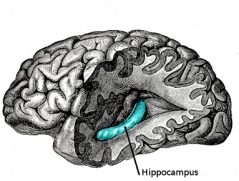
 An emerging theme that is becoming dominant in neuroscience literature are the positive effects of dietary restriction on cognitive function. If you eat less, it seems that you will become smarter. Moreover, another line of neuroscience research is showing the benefits of exercise on learning and memory. In fact, multiple studies have shown the improved learning and memory in those who engage in exercise programs. The benefits of exercise have also been shown to reverse the decline in memory of older men and women.
An emerging theme that is becoming dominant in neuroscience literature are the positive effects of dietary restriction on cognitive function. If you eat less, it seems that you will become smarter. Moreover, another line of neuroscience research is showing the benefits of exercise on learning and memory. In fact, multiple studies have shown the improved learning and memory in those who engage in exercise programs. The benefits of exercise have also been shown to reverse the decline in memory of older men and women.
The problem we are faced with in the West is that of abundance. While science is time and time again showing the benefits of diet and exercise, and the harmful effects of high fat diets, these do not seem to be sufficient incentives when we are faced with all kinds of opportunities to indulge ourselves and fulfill our appetites for fatty products. This led a group of neuroscientists at the Brain Injury Research Center from the University of California to ask the question: would exercise reverse the harmful effects of a high-fat diet?
A very important molecule in the brain is the brain-derived neurotrophic factor, or BDNF for short. BDNF is a crucial molecule that controls synaptic plasticity, which is the process dealing with how the neurons in the brain form connections between each other and how well established these connections become. Synaptic plasticity is the leading model for learning and memory, and since BDNF is a vital molecule controlling this process, its levels in the brain and how well it functions makes it a predictor of learning efficacy.
Neuroscience research has shown that a diet high in total fat reduces levels of BDNF in the hippocampus – the processing center for newly learned information in the brain. This in turn results in reduced performance in memory tasks. In order to examine whether the negative effect of a high-fat diet can be reversed, the group from the University of California published an article in which they examined how exercise can facilitate this reversal using rats as the animal model.
Healthy rats were split and assigned into one of four groups for a period of 2 months: regular diet/sedentary, high-fat diet /sedentary; regular diet/exercise; high-fat diet/exercise. The exercise groups had free access to a running wheel where they could engage in voluntary physical activity. The regular diet was low in saturated fat and contained complex carbohydrates, whereas the high-fat diet was high in saturated and monounsaturated fats, and was high in refined sugar. At the end of the period the animals underwent behavior tests for memory, and subsequently had measurements of several proteins in their hippocampi assessed, including BDNF.
The findings in this study provide encouraging news for those who have a problem with their diet habits but still manage to hit the gym. Exercise reversed the decrease in BDNF and several downstream molecules that it regulates, which are important for learning and memory. Furthermore, exercise prevented the deficit in the memory task that is normally induced by the high-fat diet. Interestingly, when the levels of markers of neuronal stress were examined, it was found that the increased stress, which would be caused by the high-fat diet, was significantly reduced by exercise.
This study shows that when they are in battle for having an effect on the brain, the positive effects of exercise seem to overcome the negative effects of a high-fat diet. However, this can really be considered to be a type of damage control. Numerous studies show the positive influence of exercise on young and aging brains, as well as its ability to reverse damage caused by various environmental factors, including poor diet choices. The greatest benefits to be gained, where one would feel a notable enhancement to their cognitive capacities is when exercise and dietary restriction are both combined for an overall healthy lifestyle and brain function.
For now, if you find that burger and fries hard to resist, then make sure you go for a run later – preferably not on a full stomach!



